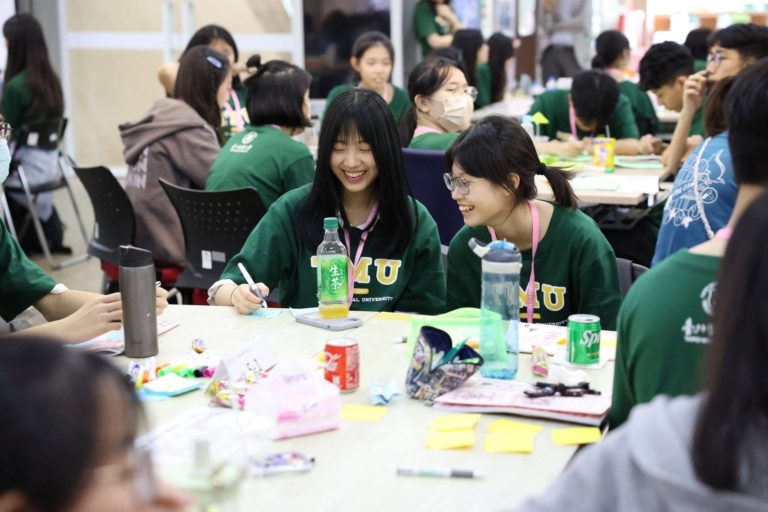On 7 August, 2025, the National Technical University «Kharkiv Polytechnic Institute» and the Lviv Polytechnic National University in Kharkiv signed a cooperation agreement in educational, scientific, and innovative activities. The goal of cooperation between Ukraine’s leading technical higher education institutions is to develop long-term partnerships to improve the level of professional training of specialists, joint research, innovation, and academic mobility. The document was signed by the acting rector of NTU «KhPI» Vice rector for scientific and pedagogical work Ruslan Mygushchenko, and rector of Lviv Polytechnic National University Natalia Shakhovska. The agreement is valid for five years.
From NTU «KhPI», Vice-Rectors professors Ruslan Mygushchenko, Andriy Marchenko, Oleksandr Trush, Gennadiy Khrypunov, Magomediemin Gasanov, Head of the Research Department Ruslan Kryvobok, and Head of the Department of Computer Mathematics and Data Analysis Olena Akhiiezer. Lviv Polytechnic National University was represented by Rector Professor Nataliia Shakhovska and Vice-Rector for Institutional Development Professor Roman Korzh.
As noted by the participants of the event, two leading technical higher education institutions in Ukraine are interested in establishing mutually beneficial cooperation aimed at developing joint educational, scientific, and economic activities. According to the five-year agreement, cooperation between the partner universities will be based on cooperation in the field of improving the level of professional training of specialists. This involves organizing and conducting joint research, exchanging experience in the field of educational, scientific, and methodological activities, academic mobility under agreed educational programs with the possibility of graduates obtaining higher education documents from the partner HEI, as well as double degrees.
In the field of education, it is planned to develop the structure and content of educational programs, improve the forms of organization of the educational process, hold joint scientific and methodological conferences on topical issues of university education, academic mobility of higher education seekers, and improve the qualifications of teachers. In the field of scientific activity, it is planned to prepare joint research projects and participate in national and international competitions, programs, and funds, exchange scientific information, and organize international scientific conferences. In the area of innovation, joint infrastructure development, support for innovative activities at partner universities, and events aimed at expanding fundamental, exploratory, and applied research, as well as the commercial development of scientific research results, are planned.
After signing the agreement, representatives of Lviv Polytechnic National University visited the German Education Center at Kharkiv Polytechnic Institute (headed by Associate Professor Denis Meshkov) and the Innovation Campus at Kharkiv Polytechnic Institute.
Note:
The National Technical University «Kharkiv Polytechnic Institute» is one of the leading and largest technical higher education institutions in Ukraine, founded in 1885. Today, NTU «KhPI» consists of 10 educational and scientific institutes and 103 departments, with over 15,000 students enrolled. Kharkiv Polytechnic is among the top 5 universities in Ukraine and ranks high among domestic higher education institutions in prestigious international ratings. In 2010, NTU «KhPI» acquired the status of a national research university. In 2022, the unique IT specialist training program Innovation Campus NTU «KhPI» was awarded the global «silver» in the field of education.
Lviv Polytechnic National University is the oldest technical higher education institution in Ukraine and Eastern Europe, founded in 1816. Currently, Lviv Polytechnic National University comprises 18 educational and research institutes, more than 100 departments, 11 colleges, and an academic gymnasium within the university structure. The university has over 30,000 students. Lviv Polytechnic consistently ranks high in national and international rankings.









.png) ▲Attendees pose for a commemorative photo at the launch ceremony of the Inha Institute of Technology, a Sino-foreign cooperative education institution established by Henan Polytechnic University and Inha University.
▲Attendees pose for a commemorative photo at the launch ceremony of the Inha Institute of Technology, a Sino-foreign cooperative education institution established by Henan Polytechnic University and Inha University.



